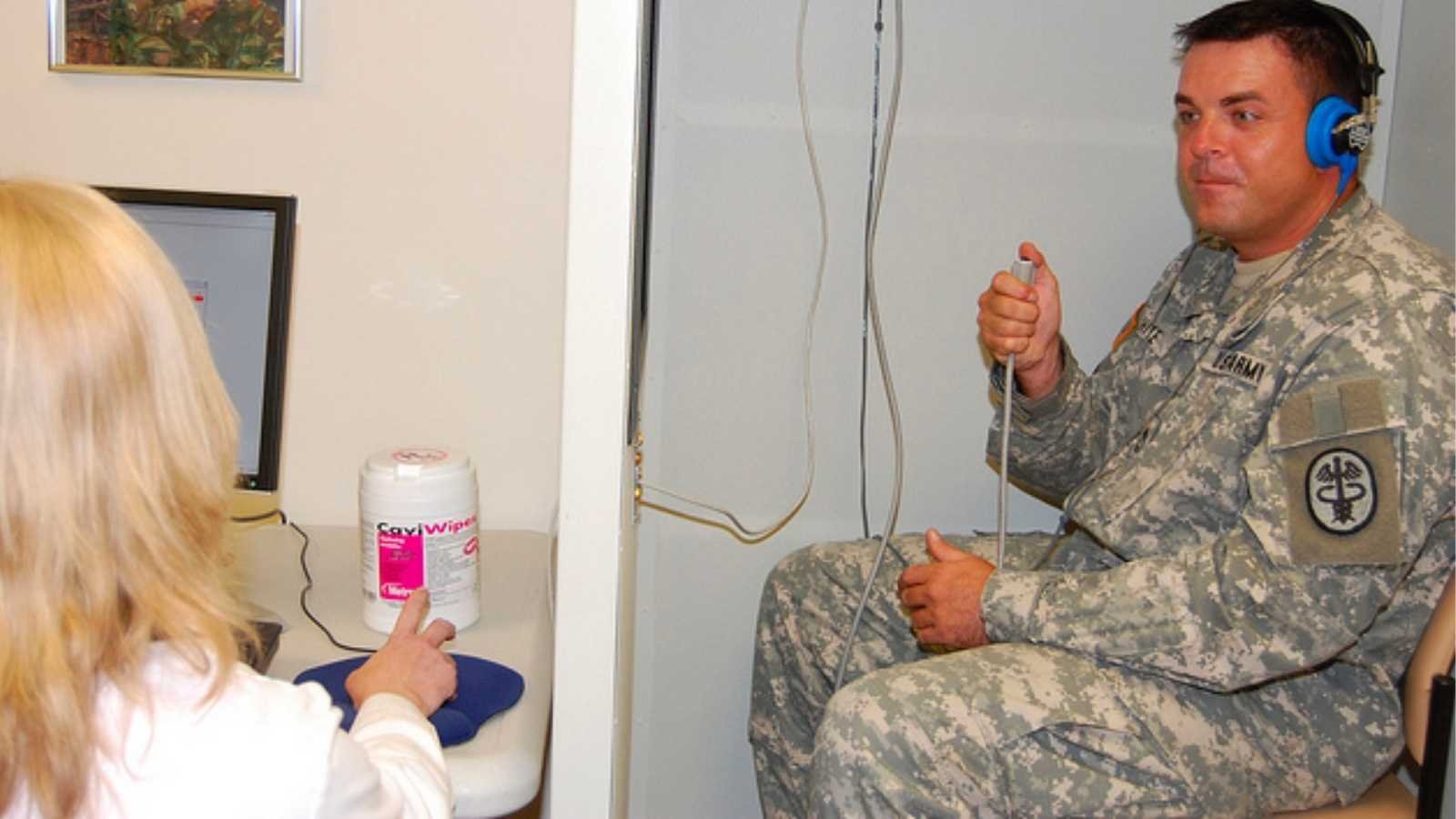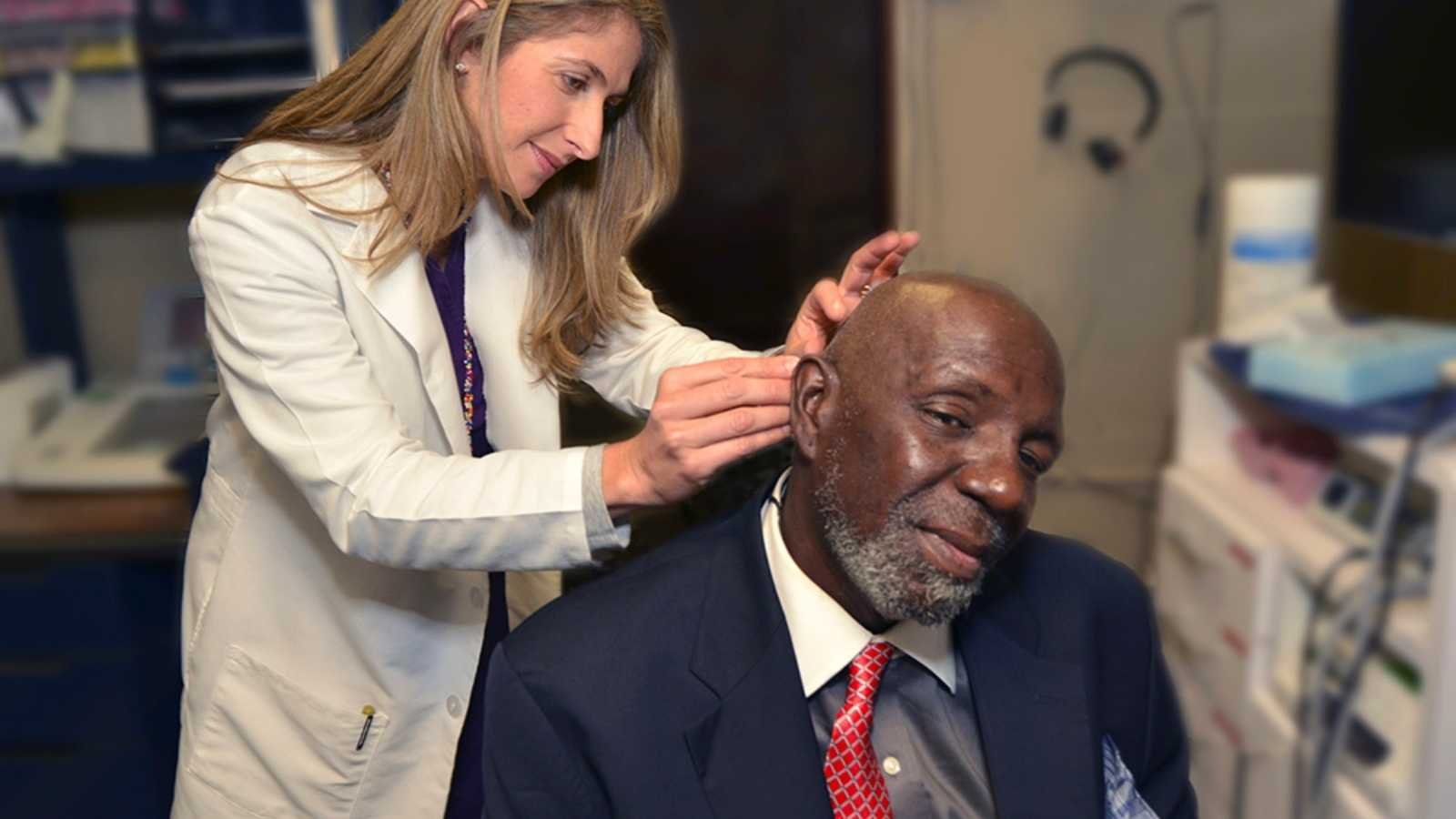A step-by-step guide to accessing hearing benefits through the VA.
Have you served in the U.S. military?
Veterans with hearing loss may be eligible for either hearing aids, disability compensation, or both. If you are a Veteran with hearing loss, there are several important things to know.
In this article, we’ll go over hearing and compensation benefits, as well as what you need to know to start the process! Stick around until the end of the article for a few commonly asked questions about VA hearing benefits.
An important distinction: VA Hearing Treatment Benefits Vs. Compensation Benefits
Are you wondering if you may qualify for hearing healthcare and/or compensation for hearing loss from your military service?
One thing to know is that there are two separate evaluations, often in two different locations.
For healthcare treatment, such as hearing aids, the Veterans Health Administration (VHA) will work with you to schedule an appointment, evaluate your hearing loss, and determine whether hearing aids are an appropriate treatment option for you.
For compensation, the Veterans Benefits Administration (VBA) will communicate with you to schedule an evaluation to determine disability benefits eligibility.
Summary: the VHA is for treatment, and the VBA is for disability benefits.
How to Get Hearing Aids From The VA
Process Overview:
- Apply for VA treatment benefits.
- Schedule an appointment.
- Meet with a VA audiologist.
- Schedule an appointment to be fit with hearing aids.
Step 1: Apply for VA health benefits.
The first step to getting hearing healthcare through the VA is to apply for VA health benefits. There are three ways to do this: by phone, on their website, or print out a form and send it via postal mail. Here is the contact information:
- By phone: call 1-877-222-VETS from 8 am to 8 pm EST
- Go online: visit www.vets.gov
- Print out form 10-10EZ and mail it to the Health Eligibility Center in Atlanta, GA
After completing this process, you can expect to wait several weeks for eligibility confirmation.
Step 2: After benefits confirmation, schedule an appointment with a VA audiologist.
Scheduling an appointment will happen one of two ways. You receive a welcome phone call from the VA, or you can call the VA to schedule an appointment. Let them know that you have trouble hearing and want to schedule an appointment for a hearing evaluation.

Step 3: Go to your audiology appointment and inform the audiologist about hearing difficulty and/or tinnitus concerns.
In your audiology appointment, the audiologist will do a comprehensive hearing assessment and discuss your hearing concerns. In this appointment, the audiologist will let you know what your hearing looks like and whether hearing aids can help. After this appointment, you will be scheduled for a hearing aid fitting. If you are eligible for hearing aids, the hearing aid fitting will be scheduled.
Step 4: Return to the audiology clinic to be fit with your hearing aids.
Now it’s time to get set up with your new hearing aids! Your audiologist will go over how to put them in, take them out, replace batteries or charge the devices, and help connect them to your phone (if desired). They will answer any questions and have you return in a few weeks to follow up and see how things are going.

Which Hearing Aid Brands Are Available Through the VA?
The VA has contracts with the six largest hearing aid manufacturers, including GN ReSound, Oticon, Phonak, Signia, Starkey, and Widex. The VA gets the top technology from each brand. The same hearing aids outside of the VA would typically cost $5,000 - $7,000 for a pair.
If you prefer a specific brand, you may need to request it directly. Many VA locations offer whichever brand their audiologist is most comfortable with.
Veterans can select from the full range of hearing aid styles
including the smallest invisible custom-molded devices or the most popular and advanced receiver-in-canal devices.
How to Get Monetary Disability Benefits From The VA
Overview:
- File a claim
- Have an exam
- Receive a decision
The section above describes the process for getting free hearing aids through your VA health benefit. In some cases your hearing loss may also qualify you for monetary disability reimbursement.
Note: if you wish to have help in this process, you can reach out to get help from a local VA representative by either calling 1-888-777-4443, visiting the website ebenefits.va.gov, or get in touch with your local VA Regional Benefits office.
Step 1: file a claim with the VBA.
File a claim by either contacting your local accredited VA representation to get started or filling out the claim form yourself. Many find that the process is easier with the help of a local representative, as the paperwork can be confusing if you’ve never done this before.
If you choose to do the paperwork yourself, you can print out the VA form 21-526EZ and fill it out. Then either fax it to (844) 531-7818 or mail it to the Claims Intake Center in Janesville, WI.
Step 2: show up to your scheduled exam.
Once the claim is processed, the VA will reach out to schedule an appointment for a disability exam. This appointment is a legal evaluation of your hearing loss and/or tinnitus. An audiologist will go through case history as well as a comprehensive hearing evaluation. However, the audiologist will not review the results with you at the end of this appointment. The information will then be sent to a committee for a rating decision.
Step 3: receive written notification of disability rating decision.
This process will take some time, but after a committee reviews the claim, a decision will be made regarding eligibility for disability compensation. The result will explain whether you qualify for disability and, if so, which percentage of disability.
If you disagree with the decision, there is also an appeals process to refute the claim.
This video from Audiologist and veteran, Dr. Cliff Olson, is a great resource for anyone just getting started. 👇
How to Get Started
Before contacting the VA, you’ll want to gather some information that will help you to complete the process. The VA may request the following information over the phone or on the paperwork:
- Social security number for yourself and your spouse.
- DD214 or separation paperwork (may ask to upload this document).
- Any current health insurance cards or coverage that you have through yourself or a spouse.
- Any outside records that can corroborate your medical claim.
- Optional: your household’s gross income for last year.
- Optional: the amount of deductible for the last year.
It will make everything easier for you to have this information ready before calling or getting started on the paperwork.
What to Know Before You Call
- Hearing aids and compensation are separate processes.
- Have all of your important information ready.
- Call during business hours (8 am - 8 pm EST).
This process can sometimes be frustrating, but fortunately, resources are available to help. Reach out to your local VA accredited representative for assistance if you don’t feel comfortable completing the paperwork yourself.
Remember that whether you’re applying for hearing aid benefits or disability compensation, each is its own process and will follow specific steps.
Frequently asked questions
The VA does not have a set number of replacements per person. If replacements become frequent, your VA office may begin to ask questions. In general, you should be able to get repairs and replacement as needed.
Active duty military do have spouse and dependent coverage but inactive military does not include hearing aid coverage for spouses.
Based on our research, the VA does not cover OTC hearing aids at this time. Veterans will need to access hearing aids through a local clinic where a professional will prescribe and program their new devices.



.jpg)


